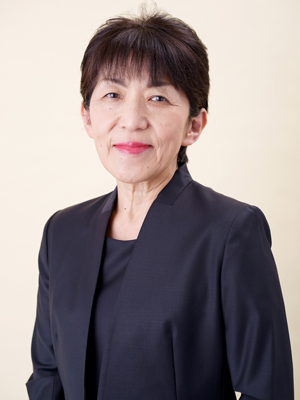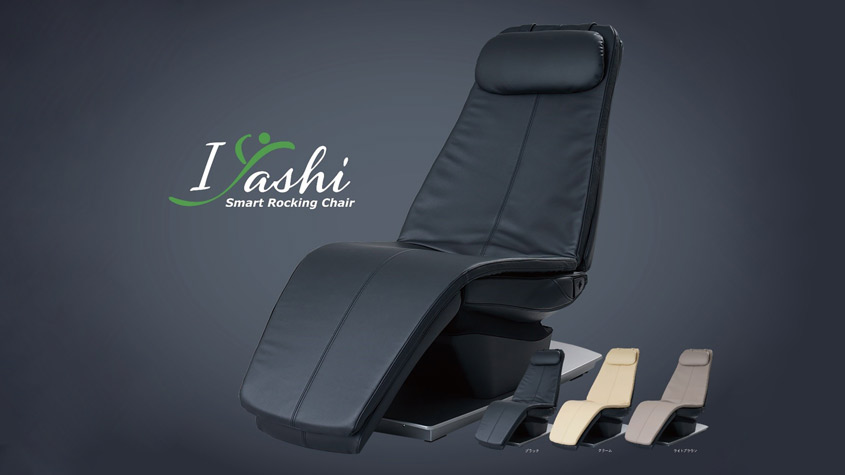
Collaboration, Diversity, and Inclusion for More Effective Innovation Ecosystems
By Yumi Ogata, WIPO Japan Office
*Ms. Ikoma sadly passed away in August 2023, following the recording of this interview in Spring 2023. The interview is published posthumously with the kind agreement of her family and Proassist, of which Ms. Ikoma was the founder and former CEO.
In June 2023, Japan unveiled plans to promote gender equality, setting a target for women to hold at least 30 percent of executives positions in top companies by 2030. At present, Japan lags behind other major economies with women occupying just 15.5 percent of executive roles in major companies. Kyoko IKOMA*, CEO of Proassist is one of a number of trailblazing women in Japan who are seeking to promote a more inclusive corporate culture in the country. Ms. IKOMA is an inventor, an entrepreneur and CEO of Proassist, a software business solutions company. From Spring 2021 to Spring 2023, in the footsteps of CEOs from many of Japan’s leading companies, Ms. IKOMA served as the Representative Director of the KANSAI Association of Corporate Executives. The Kansai region is one of Japan’s leading economic blocs. In an interview with the WIPO Magazine, Ms. IKOMA discusses the importance of fostering cooperation, diversity, and inclusion for more effective innovation ecosystems.

in Proassist,” says Kyoko IKOMA (above), CEO of
the Japanese software solution company Proassist, Ltd.,
noting that patents have been essential to the company’s
long-term growth. (Photo: Courtesy of Proassist Ltd.)
What were your key priorities during your tenure as Director of the KANSAI Association of Corporate Executives?
When I took up my role in May 2021, we were in the midst of the COVID-19 pandemic, which made things difficult because all our meetings had to be held remotely. But the pandemic only served to underscore the importance of “collaboration” and “networking,” which were key priorities for me in strengthening KANSAI’s role and development. In my role as the Representative Director, my priority was to strengthen the Association, and advance its development by collaborating with new partners and thereby expand its network. That’s why, in my first year, we developed various recommendations to foster greater collaboration and networking. Then thankfully, in 2022, when in-person activities were restored, we began implementing these recommendations through "Jitsugen – Jikko” (implement and achieve) committees, which emerged from the committee that had developed our recommendations.
I would like people, regardless of their gender, to be valued for their talents.
I also took advantage of my position to establish the "Josei Leader Juku” discussion group for female leaders. The group invited various women in leadership positions within the KANSAI Association’s member companies to share their experiences. So far, the group has organized seven lectures, and is proving an invaluable forum for female professionals to gain insights and expand their professional network. I see this as an important step in supporting women in leadership positions and promoting a more inclusive corporate culture in Japan.
What prompted you to become an entrepreneur and to establish Proassist?
After graduating from university in the 1980s, Japan’s economy was booming, and I found work as a systems engineer at a major company in Osaka. After some time, I married and became a full-time housewife. I enjoyed that role, but when Japan’s economic bubble burst, I began wondering what I could do to help. Rather than taking up salaried employment again, I decided to set up my own business offering my computer science skills to the company I had previously worked for. I set up Proassist in 1994. We now have over 200 employees and provide state-of-the-art software solutions to support the business success of our customers.
What role does intellectual property play in your business?
Intellectual property has always played a central role in Proassist. Initially, the company focused on developing algorithms for image and signal processing in computers. Patents were essential to the growth and long-term growth of the business.
Patents were essential to the growth and long-term growth of the business.
By patenting these developments, we were able to create new business opportunities by partnering with other major market players. As an example, on the strength of our patent portfolio, a major company approached us to co-develop an ultrasonic sensor. Financially speaking, the return was far better than we could have achieved through a licensing agreement. It also enabled us to expand our technology portfolio. Our patents also enable us to defend our market position and have certainly helped to boost our company value. Our patents demonstrate that our company is built on our brainpower and expertise.
When did you first learn about intellectual property?
I first learned about intellectual property at elementary school. My father was a science teacher and an inventor, so I became familiar with the term "invention" at an early age. Then, after my university studies, while working as a systems engineer, my supervisor encouraged me to patent an algorithm I had developed. I had become an inventor in my own right. Together we jointly applied for my first patent. At the time, I didn’t fully understand how important patents are in securing a company’s market position, but it was a great opportunity to learn about the patent application process firsthand.
What are your goals for the future?
We started 30 years ago, as a problem-solving company, and now our aim is to continue to develop as a "company that creates jobs" in collaboration with our customers.
The best way to demonstrate the power of our solutions is to ensure they produce results for our customers.
As we move forward, our aim is to deepen our technology so that when it is embedded in our customers’ systems it augments their performance. This is our core business. Embedded systems are hidden from view. They are not on public display. So, the best way to demonstrate the power of our solutions is to ensure they produce results for our customers. Then, as our customers become profitable and succeed, we grow, as other market players seek out our solutions in a bid to boost their own performance. This is how we will gain market visibility and create new business opportunities.

What in your view is the key to business success?
In postwar Japan, many new technologies and intellectual property assets were created - mostly by men -to compete with the rest of the world. They introduced many wonderful products. But by 1994, when I founded Proassist, this approach was reaching saturation point. Since then, innovation-based companies have placed greater emphasis on “cooperation” with industry partners as the key to unlocking new ideas. These days, collaboration is central to business success.
And why is diversity is so important?
We believe that new ideas cannot be born without interacting and collaborating together with people who have different perspectives and backgrounds. That is why it is so important for women and men to work together as equal partners. Inclusive innovation ecosystems are the only way forward in today’s highly competitive economy. When I founded the company, diversity was not on my radar, but now, I am convinced that diversity is our strength. It is central to our ability to come up with innovative ideas.
We believe that new ideas cannot be born without interacting and collaborating together with people who have different perspectives and backgrounds.
As a child, my parents never put limits on what I could do because I was a girl. I was allowed to do whatever I could. Then, at university, while I was one of four female students out of nearly 4,000 students in my year, I wasn’t singled out. I was treated the same as my fellow students. These experiences laid the foundations for my approach to recruiting the talent I needed, regardless of gender or nationality, when I founded the company.
How would you like to see the landscape for women evolve?
I would like people, regardless of their gender, to be valued for their talents. There is a Japanese saying, "A man has seven enemies." The thing is, when I worked freely, without pre-conceived ideas of who could or should do something, I ended up in an environment where "I have 100 allies." We all have so much to gain from treating women and men as equals, especially when it comes to developing innovative ideas that work for everyone.
The WIPO Magazine is intended to help broaden public understanding of intellectual property and of WIPO’s work, and is not an official document of WIPO. The designations employed and the presentation of material throughout this publication do not imply the expression of any opinion whatsoever on the part of WIPO concerning the legal status of any country, territory or area or of its authorities, or concerning the delimitation of its frontiers or boundaries. This publication is not intended to reflect the views of the Member States or the WIPO Secretariat. The mention of specific companies or products of manufacturers does not imply that they are endorsed or recommended by WIPO in preference to others of a similar nature that are not mentioned.